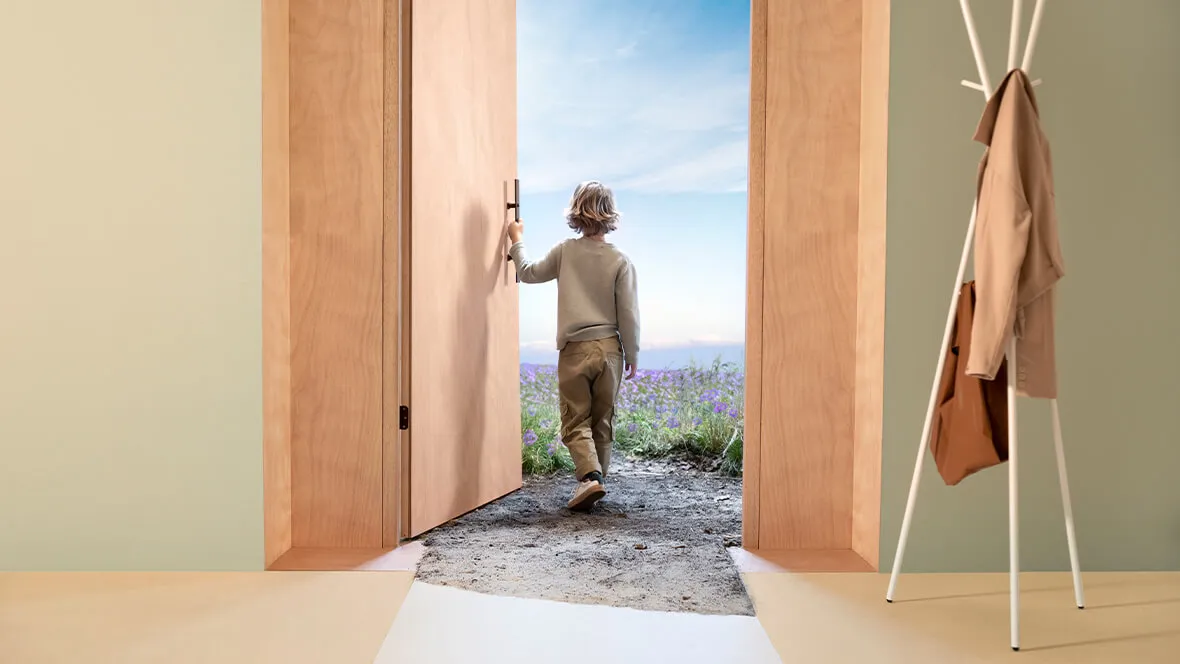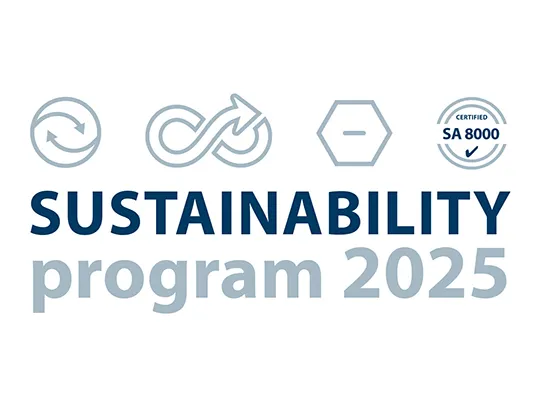Building A Sustainable World
March 2021

Around the world, more and more cities, countries and businesses are adopting pledges to become more sustainable. In this blog, we explain our vision, plans and ambitions for creating a more sustainable world and why products like Marmoleum are helping in this endeavour.
Achieving net-zero buildings by 2030 is a tall order. And one that can only be realised with the full commitment of all industry stakeholders.
Architects and specifiers need to be able to make informed design choices that will, over time, help close the loop and contribute to a more circular economy. Forbo Flooring Systems’ most recent Sustainability Programme reflects this ambition, setting out a roadmap for becoming a zero-waste company by the year 2025.
The three key focus points in the Forbo Flooring Systems’ sustainability plan are, quite simply, increasing reliance on renewable resources, maximising product lifespan and reclaiming materials and waste.
As we know, sustainable choices begin at concept and design…


The 4R principle of Reduce, Reuse, Recycle and Renew is a great starting point for making more sustainable products. When applied effectively, this approach extends far beyond physical materials alone, but encompasses all stages of a product lifecycle – from raw materials sourcing and manufacturing right through to end-of-life recycling, and everything in between.
Made from natural raw materials in a climate positive manufacturing process, linoleum can represent an astonishingly sustainable floor covering. Here’s how:
The average carbon footprint of (linoleum) products in our Marmoleum range is climate positive (cradle-to-gate) – without the need for offsetting. 97% of the materials used in Marmoleum are natural raw materials, meaning they will break down naturally in the environment. Of these, a further 70% are rapidly renewable, with a harvest cycle of less than 10 years.
See what natural raw materials Marmoleum is made of
Watch the Marmoleum manufacturing process
.jpg)
Engineered to last up to 20 years, Marmoleum is extremely long-lasting. It has a Topshield pro floor finish, that takes the performance of our Marmoleum floors to a new dimension. Topshield pro has been designed to create a ‘ready to use’ Marmoleum that requires no initial maintenance or polymer application and is even more resistant to dirt pick-up, less prone to wear and has improved resistance to scratches and stains.
[READ MORE ON Topshield pro](https://www.forbo.com/flooring/en-gl/products/linoleum/Topshield pro/pvkcoz)
.jpg)
Just as there are opportunities for minimising energy output throughout the product lifecycle, so too are there opportunities for harvesting redundant materials. Indeed: 43% of the material content in Marmoleum has been recycled or reused. These materials include rejected rolls from the factory and post-consumer waste in the form of old flooring, as well cut-offs from new floor fittings. What’s more, being so rich in natural materials, Marmoleum itself is highly compostable.
Read more on the Back to the Floor scheme
This last area of focus is a particularly good illustration of how the circular economy epitomises joined-up thinking. It is precisely this integrated approach that has got us where we are today: 150 years of innovation and foresight have resulted in superbly sustainable, durable yet aesthetically desirable floor coverings. But together, we can do even better.
.webp)
"Companies can contribute to fighting climate change by developing low-carbon products, services and low-carbon technologies that reduce their customers' carbon emissions."
Carlos Sanchez, Sustainability Expert

As sustainability and zero-waste become increasingly important in the word of architecture, circularity must be kept front of mind if global environmental targets are to stand a chance of being met. Taking this responsibility seriously, Forbo Flooring Systems will continue to invest heavily in making its already highly sustainable, natural product ranges even more environmentally friendly.
Sustainability expert and author of the blog, Smart Sustainability, Carlos Sanchez suggests that companies set credible and ambitious net-zero targets, and that they are transparent about the methodology used to calculate those targets. He also states that "Companies can contribute to fighting climate change by developing low-carbon products, services and low-carbon technologies that reduce their customers' carbon emissions."
Forbo Flooring Systems strives to do just that.
To learn all about the Forbo Flooring Systems sustainability goals and exactly how we intend to achieve them, click here.